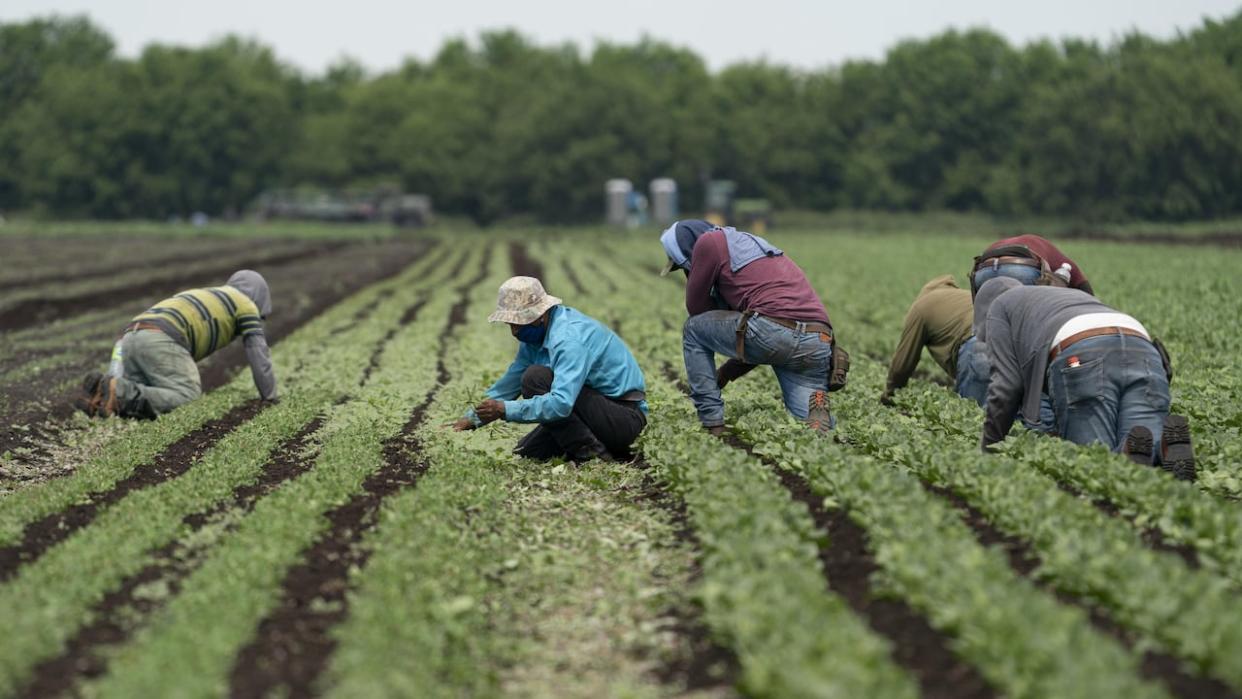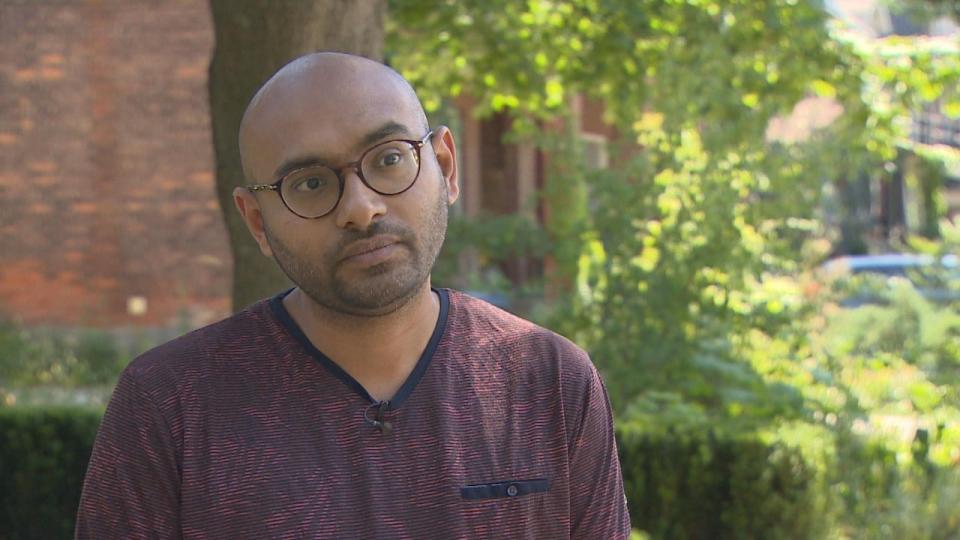UN envoy links temporary foreign worker program to 'contemporary forms of slavery'

A United Nations official on Wednesday denounced Canada's temporary foreign worker program as a "breeding ground for contemporary forms of slavery."
Tomoya Obokata, UN special rapporteur on contemporary forms of slavery, made the comments in Ottawa after spending 14 days in Canada.
"I am disturbed by the fact that many migrant workers are exploited and abused in this country," he said.
"Agricultural and low-wage streams of the temporary foreign workers program constitute a breeding ground for contemporary forms of slavery."

Tomoya Obokata, UN special rapporteur on contemporary forms of slavery, says Canada's temporary foreign worker program creates an unequal relationship between employers and employees. (Submitted by the UN Human Rights Commission)
The special rapporteur role was created by the UN in 2007. Its mandate includes investigating and advocating against forced or coerced labour.
Obokata said migrant workers face deportation if they lose their work permits, which also prevent them from changing employers if they face abuse.
"This creates a dependency relationship between employers and employees, making the latter vulnerable to exploitation," he said, adding that many workers are reluctant to report abuse because they fear losing their permits.
Thousands of workers come to Canada each year to work through the program. Statistics Canada estimates that temporary foreign workers make up 15 per cent of Canada's agricultural workforce.
The system came under scrutiny during the pandemic. Auditor General Karen Hogan reported in 2021 that the federal government did not do enough to ensure those workers were being protected.
Obokata's comments echo those of Jamaican migrant workers who, in an open letter to their country's ministry of labour last year, described their working conditions in Ontario as "systematic slavery." A subsequent report released by the Jamaican labour ministry did find issues with the temporary foreign worker program but ultimately concluded that conditions were not "slave-like."
Obokata said he spoke with a number of migrant workers who described having to work excessive hours with no access to overtime pay, being denied access to health care and being forced to live in cramped and unsanitary living conditions.
The UN official called on the federal government to give all temporary foreign workers a pathway to longer term or permanent residency and grant workers permits that would allow them to switch employers freely.

Syed Hussan is the executive director of Migrant Workers Alliance of Canada. He says federal immigration policy is the root cause of the crisis with migrant workers. (CBC)
Syed Hussan, executive director of Migrant Workers Alliance for Change, said Obokata's conclusions are nothing new.
"He's repeating and he's saying what we've been saying for a long time ... migrant workers in this country are being exploited and permanent resident status is the primary solution to ensure that they have equal rights," Hussan said.
The government launched and later extended a pilot program that opens up a pathway to permanent residency to a few thousand agricultural workers each year.
Hussan said he hopes Obokata's comments will push the government to implement a permanent program for all temporary foreign workers.
"I think that if the UN rapporteur is 'disturbed,' it's a message to the federal government that they're doing something very, very wrong and they need [do an] about-turn and ensure status for all," he said.
Government refutes rapporteur's report
When asked, Immigration Minister Marc Miller's office wouldn't say if a permanent pathway for all temporary workers to gain permanent residency status was in the works and instead pointed to other pathways, like the agricultural worker pilot program.
"We cannot speculate on future policies. All new policies will be announced publicly," a spokesperson said in an email.
The spokesperson also refuted Obokata's suggestion that workers aren't able to change employers. They said workers can apply for a interim work permit that would receive a response within 10 to 15 days.
While IRCC issues work permits for temporary foreign workers, the bulk of the program is administered by Employment and Social Development Canada (ESDC).
A spokesperson for Randy Boissonnault, the minister responsible for ESDC, told CBC that the government disagrees with parts of Obokata's report. Specifically, they said the federal government conducts random inspections to ensure employers are following the rules.
"If an employer fails to meet program requirements or conditions or does not cooperate during an inspection, consequences can be severe," the spokesperson said in a statement.
In his report, Obokata raised concerns about federal and provincial inspection processes, suggesting that inspections are infrequent and can take place via telephone.


